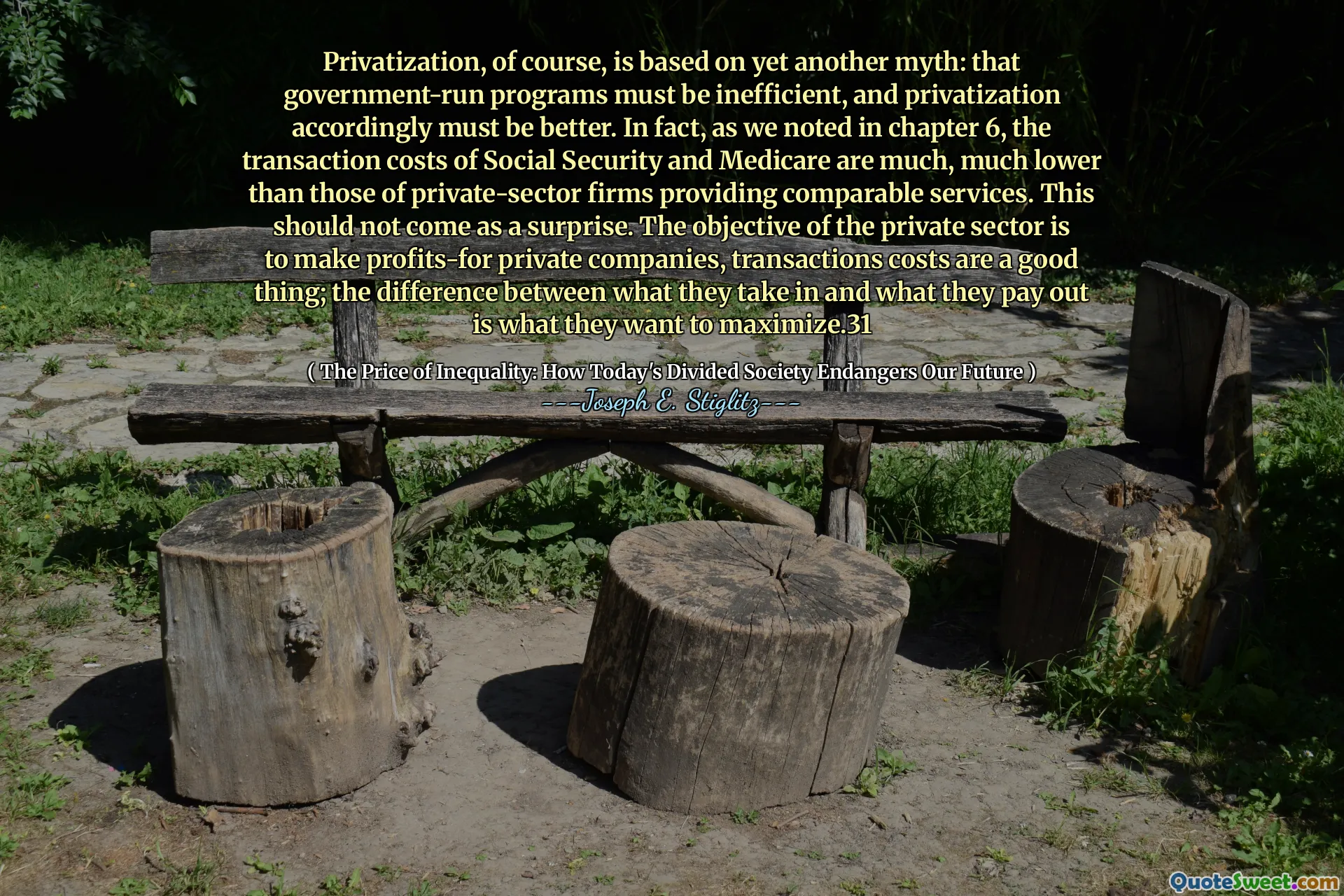
Privatization, of course, is based on yet another myth: that government-run programs must be inefficient, and privatization accordingly must be better. In fact, as we noted in chapter 6, the transaction costs of Social Security and Medicare are much, much lower than those of private-sector firms providing comparable services. This should not come as a surprise. The objective of the private sector is to make profits-for private companies, transactions costs are a good thing; the difference between what they take in and what they pay out is what they want to maximize.31
Privatization is often based on the misconception that government programs are inherently inefficient, suggesting that private sector alternatives must be superior. However, evidence shows that the transaction costs associated with government-run programs like Social Security and Medicare are significantly lower than those found in private companies that offer similar services. This indicates that government operations can be more efficient than their private counterparts.
The rationale behind private firms is profit maximization, where higher transaction costs can benefit the business model. In essence, private companies thrive on the difference between their intake and outgoings, often leading to inefficiencies. The belief that privatization is universally better overlooks these fundamental differences in objectives and operational efficiency, challenging the narrative that government-run programs are less effective.





